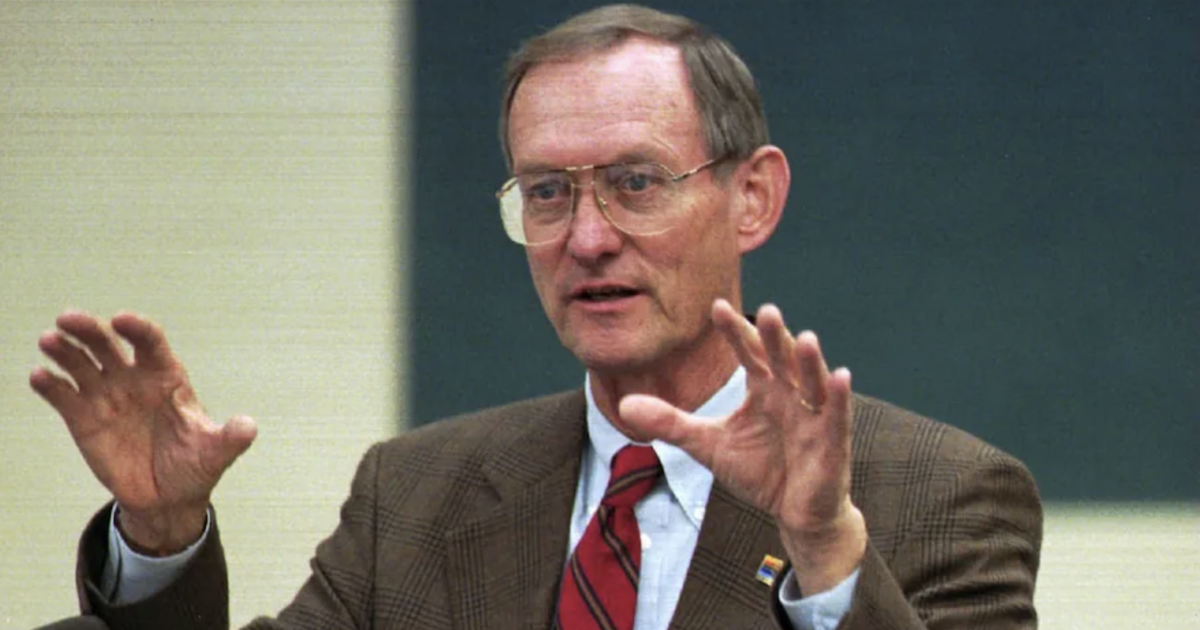David J. Fischer, who served as mayor of St. Petersburg longer than anyone in the city’s history from 1991 to 2001, died early Oct. 22. He was 92.
In his decade at City Hall, he saw the inaugural season of the Tampa Bay Devil Rays, came under fire for his handling of civil unrests following a fatal police shooting of a Black motorist, helped end the Tampa Bay “water wars” and planted more than 18,000 trees.
Former St. Petersburg Mayor Rick Baker led all three of Fischer’s campaigns for mayor before succeeding him in 2001. Baker had stayed in touch with Fischer, who was living at Westminster Palms, and visited him about four months ago.
“I thought he was a leader of our city that cared deeply about the city,” Baker said. “And I personally considered him a great mentor for me and a very dear friend.”
According to Times archives, Fischer was born in Evanston, Illinois, and was raised there and in New York. He earned a business degree from Duke University in 1955 and also served as a U.S. Air Force pilot, flying F-100s, from 1956 to 1958.
Fischer then returned to New York, working on Wall Street for two years, before moving to St. Petersburg in 1960. For three decades he was a financial consultant and municipal bond dealer.
He served on the City Council from 1975 to 1979 before being elected mayor in 1991. At the time, St. Petersburg was transitioning from being a city run by a city manager with the mayor serving on the council in a ceremonial role to a city with a mayor as its chief executive.
Baker said after Fischer was elected, he and the mayor went on field trips to Tampa and Orlando to see how their governments were structured.
Fischer ran successfully for mayor three times before term limits were in place.
Fischer’s late wife, Margo, was a former state legislator who died in 2005 at age 58. His daughter, Susan Fischer McGarry, posted Wednesday on Facebook about her father.
“He leaves an incredible legacy of philanthropy and development of the City, supporting many organizations relative to education, minorities, children, church, animals and the arts,” McGarry wrote.

